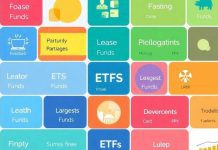
We can make no clear conclusions on how much further markets may decline. We do know that this panic will subside but don’t know if it will accelerate before it subsides. Anyone claiming ability to be able to predict the future in this field has self-awareness issues. While many public market commentators and investment bank strategists were calling for a market correction, no one stated a respiratory virus and a Saudi-Russia oil price war would be the cause. Corrections are caused by things that we have not anticipated. Throughout my more institutional investment experience I have seen time and time again predictions about the future which were consistently and often significantly wrong. There is clearly a lot of uncertainty today. But there is always uncertainty. There was uncertainty in 2007. We just didn’t know it until 2008/09 came along and the uncertainty was suddenly reflected in asset prices.
We could come up with reasons to justify why markets have overreacted – 12 countries account for almost all COVID 19 cases but warmer weather kills almost all respiratory diseases. We have seen peaks in early markets already and significantly lower fatality rates than commonly understood, but panic spreads more quickly in a social media world. Predicting the evolution of its effects is well beyond the scope of humans’ abilities.
Future investment decisions should be made on data not emotions. The median market performance two years after a correction is 45%. This alone statistically suggests investing into corrections is how long-term investors perform better than macro traders and market speculators. It does not mean that if you invest today the market will not go down further and if the market declines further it does not mean investing today was the wrong thing to do – process vs. outcomes. It just means you didn’t pick the bottom. Trying to pick the bottom is a tiny return on investment game to play.
Investing is not easy, not cosy and at times very uncomfortable. If it doesn’t feel uncomfortable you are acting consensually, and you are destined for average investment results – in which case buy an index and at least save the fees. The only way to navigate these periods with sanity and resilience is to have a very long-term view. Those who understand compound interest earn it; those who don’t, pay it. Those who have the temperament, mindset and patience to invest countercyclically over the long term do the best.
Tollymore’s own balance sheet and aligned investment partners have allowed us to remain calm throughout this period. This is part of being a public equity manager and the cost of this volatility is far superior long-term results. So far this year we have been purchasing more shares of smaller, less liquid companies where there may have been non-fundamental selling pressures exaggerating stock price declines. Capacity constraints are an important safeguard against permanent capital erosion; their paucity is a function of widespread greed, something we hope to exploit.
By Mark Walker, Managing Partner at Tollymore Investment Partners
HedgeThink.com is the fund industry’s leading news, research and analysis source for individual and institutional accredited investors and professionals




































